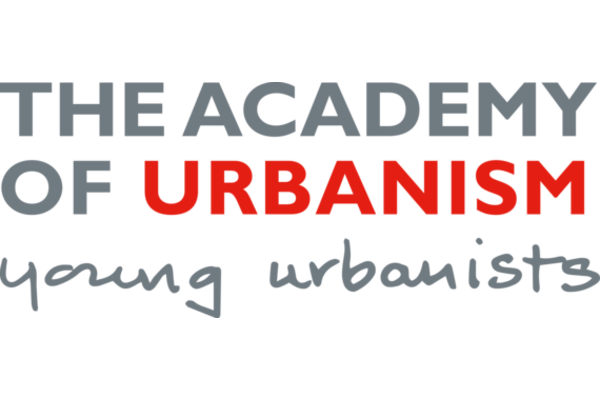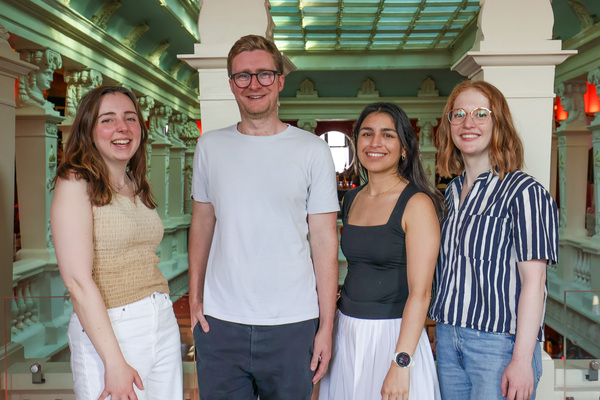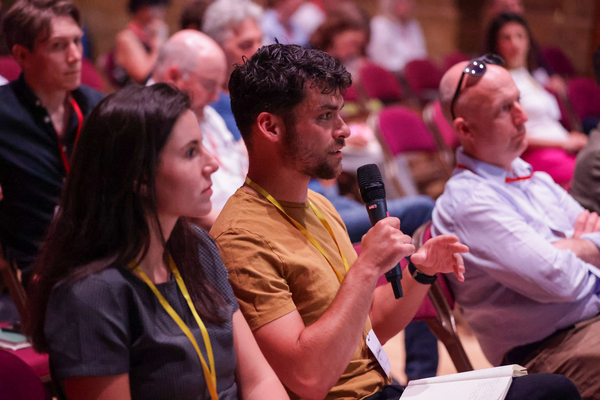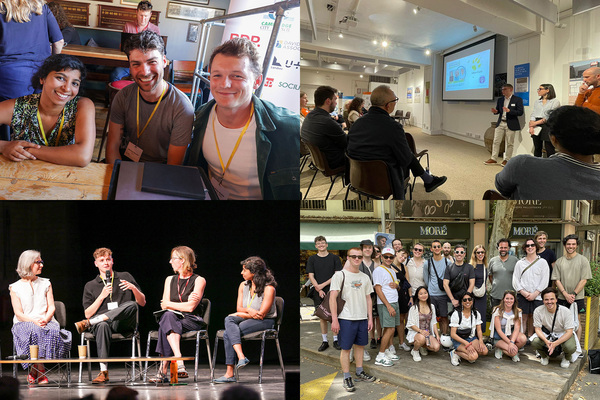Congratulations to the Small Grants Scheme 2021/22 Recipients!
This year we received some great ideas and proposals, ranging in originality and diversity. We are pleased to announce the recipients of the Small Grants Scheme 2021/22 and we look forward to their findings!
Please join us in congratulating recipients Shruthi Padmanabhan, Amelia Powell and Kirsty Watt.
Learn more about the projects of your fellow Young Urbanists below!
HerCollective: workshop development that supports the creative and social interpretation of gendered design
Young Urbanists: Amelia Powell and Kirsty Watt
The built environment surrounds our everyday lives, and the topics of women’s safety and inclusivity have never been more prevalent. Following the murder of Sarah Everard in March 2020 - coinciding with the UN survey that 97% of the UK’s 18–24-year-olds had some experience of sexual harassment or violence - the discussion around women’s safety in the built environment has been popularised both by built environment professionals and the general public.
However, there is still a disconnect between this wider discourse and physical design application. HerCollective was created to aid in that translation - and explore the constraints of successful solutions - within the UK’s design and development. By filling these gaps in the current knowledge and practice, we hope to make a wider impact on safe spaces for all people by encouraging designers to consider all users earlier, addressing themes of inclusivity, sustainability, safety and community.
This project consists of a workshop structure, first applied at the University of Dundee, and then more widely at the Academy of Urbanism. The workshop development will include the documentation of public space, and when applied will encourage the critical analysis of who is and is not using public space. We hope that this will support the testing and questioning of gender design within future design practice, and eventually lead to gender-inclusive, sustainable, urban environments.
Regular updates on the workshop development pedagogies and success of the application will be found on www.hercollective.co.uk as well as in a summative report for Academy of Urbanism members.
Wild: An exploration of the human relationship with nature through a cultural lens
Young Urbanist: Shruthi Padmanabhan
Nature and man have remained the same since the last evolutionary cycle, however the same cannot be said about their relationship. Various cultures from premodern times to the western civilisations have seen a gradual change from respecting nature as part of the ecosystem to the domination over nature and natural beings. Premodern cultures such as Indian, Native Indian, and others acknowledge nature and celebrate its cycles within their social and cultural paradigms. The festival of Vishu, Pongal, Vaishaki celebrate the dawn of a new harvest, whereas the festival of Kumbh Mela celebrates the cycle of nature. During the harvest festivals, ‘maidans’ and streets are filled with people encouraging social interaction and general cheer, whereas the latter with ‘mela’ has festival celebration which attracts huge volumes of people, gatherings and celebrations. Each of the festivals has a unifying construct, they create landscapes that are unique to these cultures and create an opportunity for the users to include the celebration of nature and its cycles. Does the association of the natural cycles with culture build an attitude of belonging as part of the natural ecosystem and create equitable landscapes usable by different people?
In the western world today, nature and its processes are not often identified from the cultural perspective. While the ecological aspect of nature has gained importance, the landscapes created less often acknowledge and include the natural cycles in their design or execution. By having a cultural connection to natural processes, do we facilitate an attitude of coherence with nature and consider ourselves a part of it?
The aim of the research is to understand if having a positive or cultural association with nature helps in being more responsive and if it discourages a notion of dominion over it whilst also understanding the consequential landscapes that it creates.









